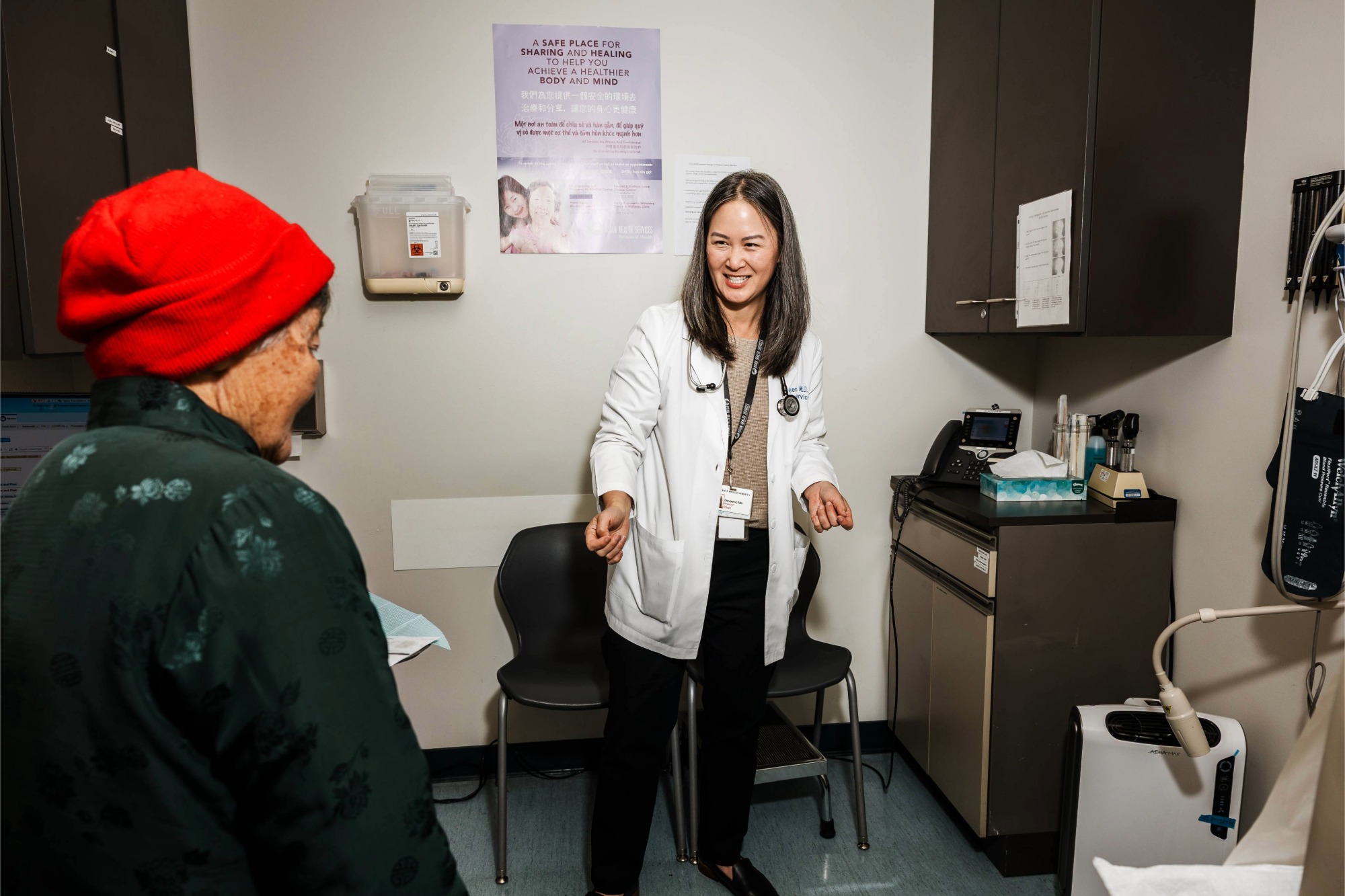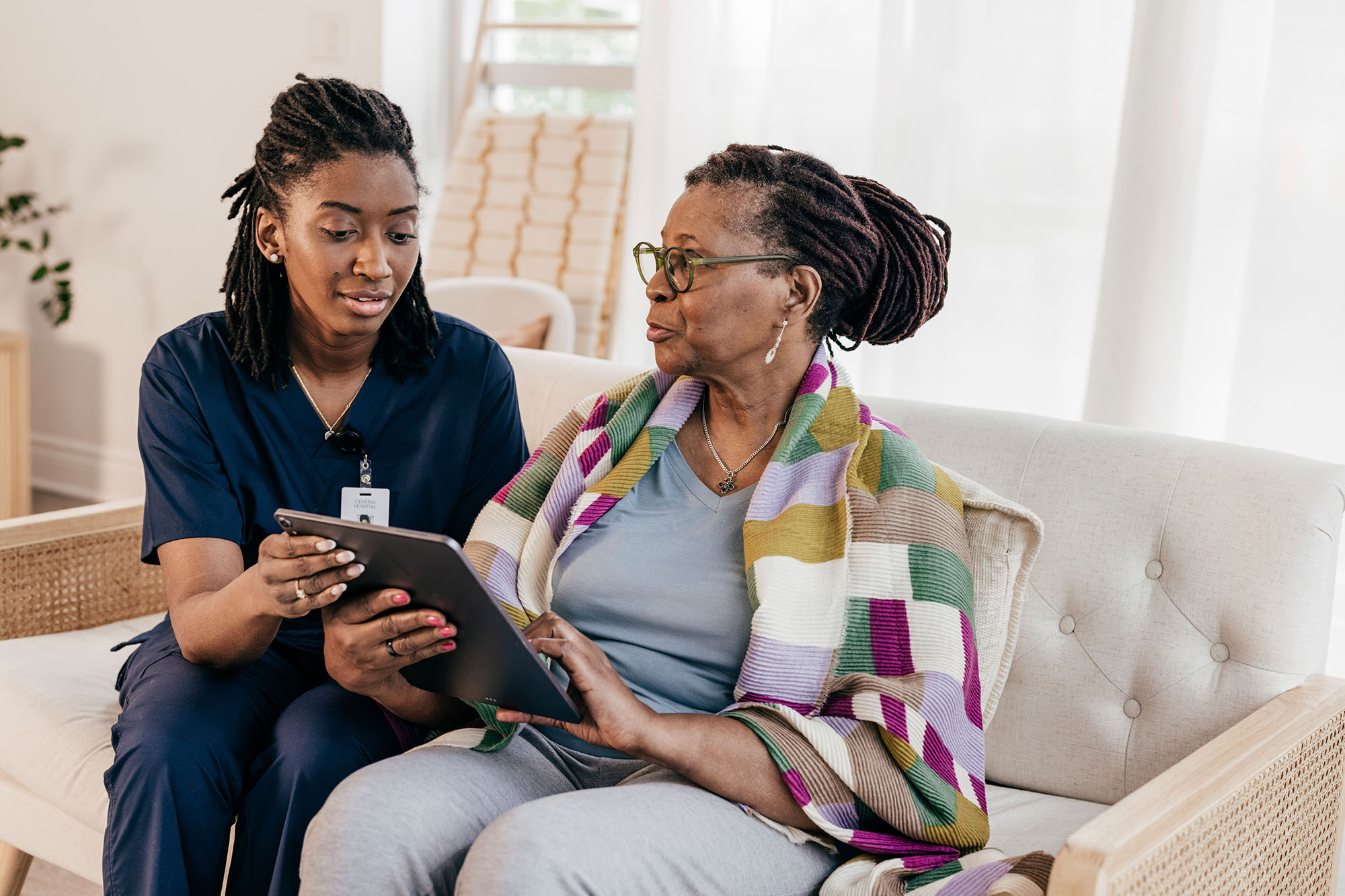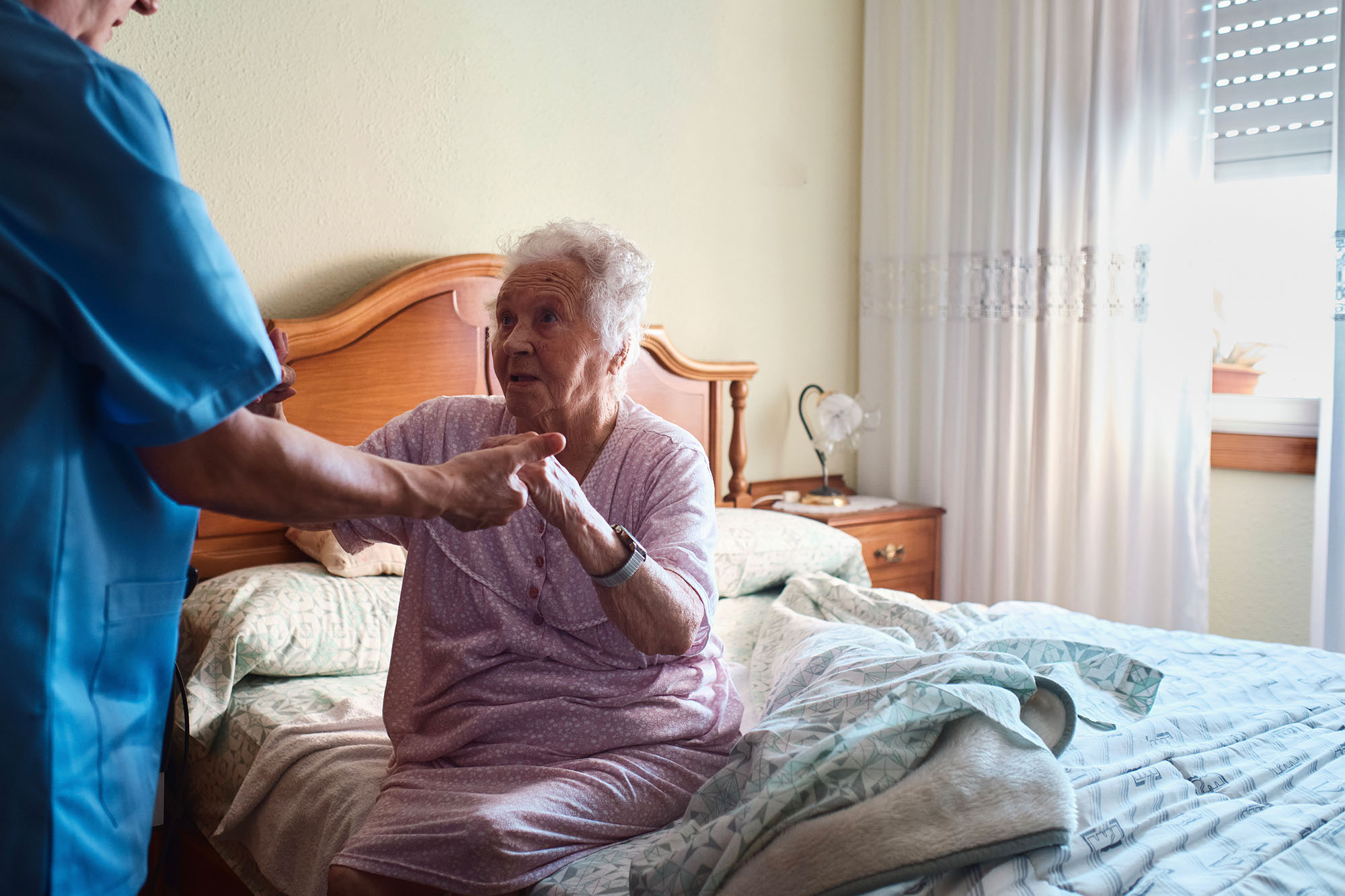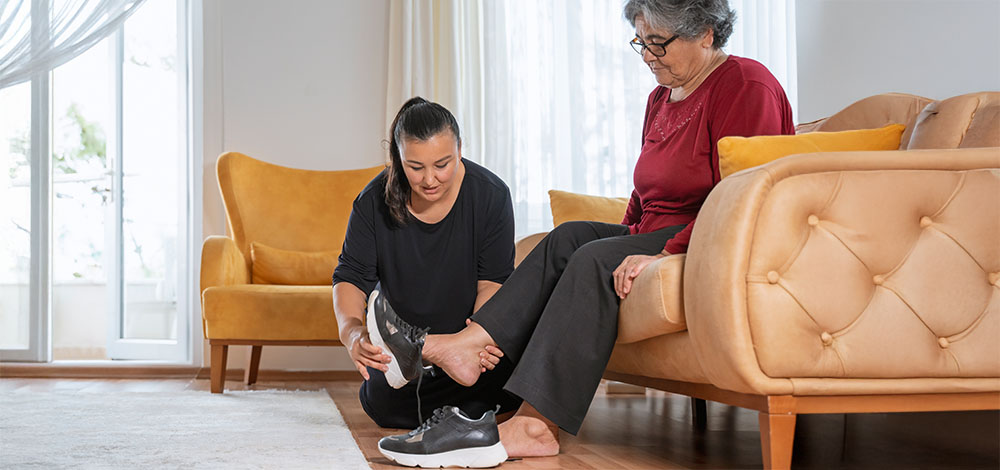|
Getting your Trinity Audio player ready…
|
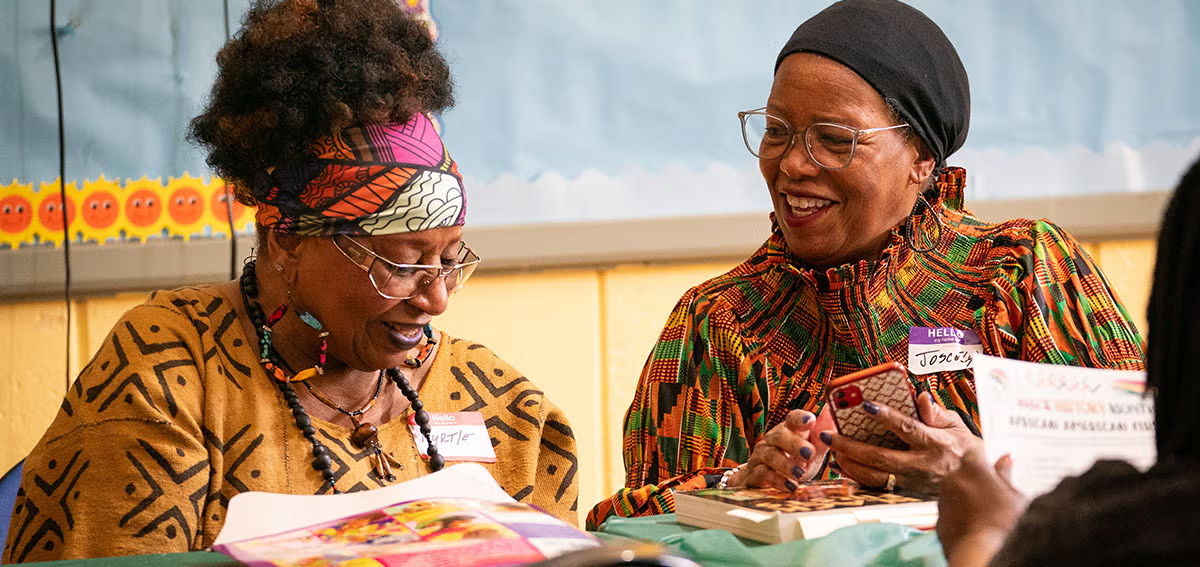
Life slowed down for truck driver James Bryant, 76, after he retired in 2011. He found himself stuck at his Los Angeles home a lot more. His social circle was narrowing, and chronic arthritis and a bad back made it even harder to get out.
Three years ago, Bryant got a phone call from Claudia Mata, a community engagement liaison for a program called Wider Circle. Her organization had contracted with his Medicare plan to organize social get-togethers for older members in his area. Would Bryant and his wife, Mary, like to come to a free breakfast at IHOP?
“I said, sure, why not?” he recalled. It seemed to him to be an opportunity to get out of the house. “We’ve been coming to meetings ever since,” Bryant said. “We enjoy ourselves. It’s our outing.”
Bryant was one of about 40 people playing bingo, chatting, laughing, and sharing in a potluck at a recent Wider Circle celebration of Black History Month at a community center in Inglewood. It’s one of hundreds of gatherings in neighborhoods across California each month that are organized by the company. The events encompass a range of activities, including community potlucks, board games, group walks, health workshops, coffee shop meetups, movie outings, dance parties, and museum visits. Facilitators also host virtual get-togethers for members who can’t get to or prefer not to attend in-person events.
Between the community events, Wider Circle regularly checks in with members by phone or in person to see how they’re doing. Participants are invited to attend events based on where they live and other shared characteristics, such as language. The meetings are designed to help members connect with people from similar backgrounds so they can form friendships and interact socially.
While it may seem like a kind of social club, Wider Circle is actually a health intervention. Studies show that bringing people together this way decreases loneliness and isolation and can lead to significant improvements in physical and mental health.
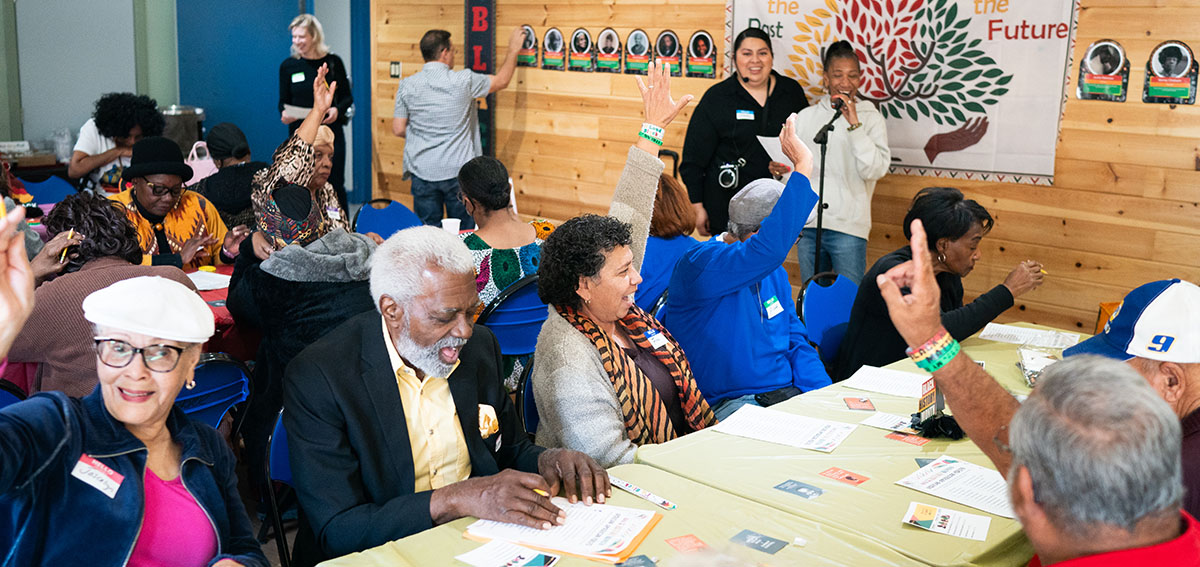
Tackling Loneliness to Improve Health
Participants enroll in Wider Circle through their health insurance plans. About two-thirds of Californians served by the program are eligible for both Medicare and Medi-Cal (California’s Medicaid program), and many are enrolled in Dual Special Needs Plans (D-SNPs). Americans eligible for and enrolled in both Medicaid and Medicare, or dually eligible enrollees, are more likely than Medicare-only beneficiaries to live with limited financial means and complex health challenges.
“Loneliness has been shown to worsen cardiovascular disease, mental health, Alzheimer’s progression, inflammatory diseases,” said Claude Pinnock, MD MPH, Wider Circle’s chief medical officer. “Tackling loneliness will improve outcomes and improve comorbidities, which will lower the cost of care as well and drive higher value to our members.”
Wider Circle launched a decade ago in the San Francisco Peninsula community of Redwood City. Founders Darin Buxbaum and Moshe Pinto, medical device entrepreneurs who met at Stanford University, were inspired to tackle the crushing effects of loneliness that they had seen disrupt the lives of their own family members. Buxbaum had watched his grandmother’s physical health decline rapidly after his grandfather died and she began spending more time alone. Pinto saw his mother lose her zest for life as she became less sociable with age. In the last several years, the issue of chronic loneliness was highlighted by former US Surgeon General Vivek Murthy amid growing scientific and cultural interest in the problem.
Buxbaum and Pinto delved into research on loneliness, sifting through around 600 studies that included landmark studies from the 1970s that correlated mortality risk with social isolation. Research from the United Kingdom showed that bringing people together in groups improves their health.
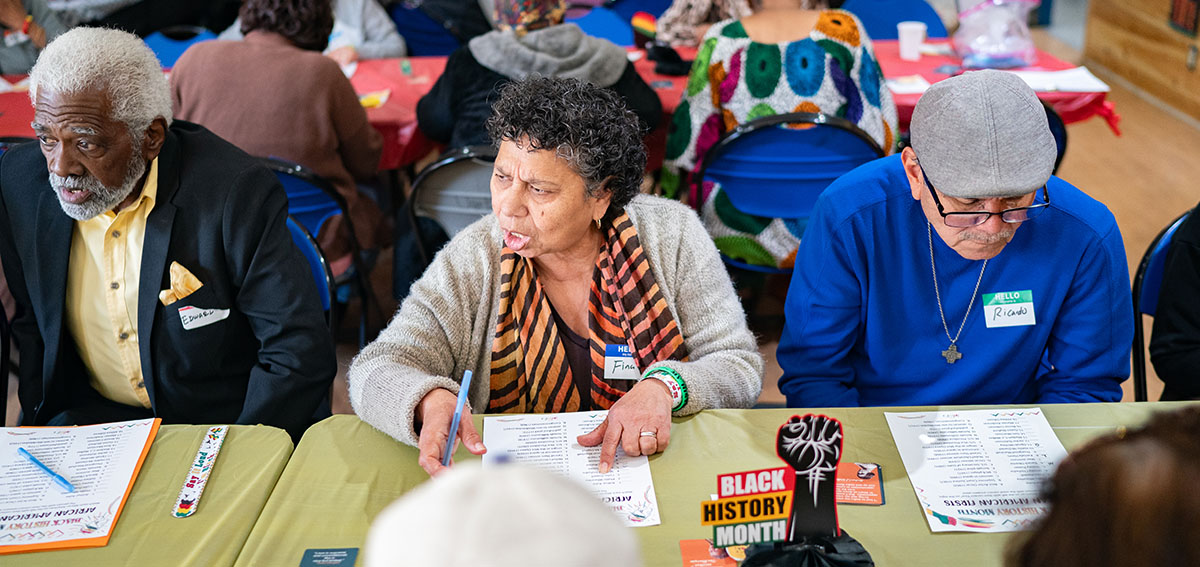
“The more we looked at the research, the more it became clear that people need other people, and people need purpose. It’s not that complicated,” Buxbaum said. “We saw these seminal papers and asked, ‘how are people not doing something about this?’”
Wider Circle held its first community gatherings at a senior center in Redwood City that catered to participants from a range of socioeconomic backgrounds. After those events received good feedback, the city asked Buxbaum and Pinto to bring the program to older adults living in publicly subsidized private rental housing and struggling with economic hardship and extreme isolation. As these adults met and socialized week after week, Buxbaum saw their outlooks change dramatically for the better.
‘Groups Become Their Family’
“One person said life was a very, very dark tunnel, and the program became this light that helped guide her out of that tunnel,” Buxbaum said. “I’ve had members literally come up and hug me and say the program saved their life. That they used to think about throwing themselves in front of a car and now they have something to look forward to. The groups become their family.”
Convincing investors to take a chance on the fledgling company proved challenging, however. At the time, venture capital firms preferred to invest in machine learning, a type of artificial intelligence, Buxbaum said. Many investors scoffed at the proposal of bringing humans together to solve loneliness. They suggested Buxbaum and Pinto start a nonprofit and apply for grants.
Eventually, Wider Circle secured significant funding to expand the program nationally. Backers include AmeriHealth Caritas, Blue Venture Fund, Kaiser Permanente Ventures, and Chicago Ventures.
Last year, the California Health Care Foundation’s Innovation Fund invested $1 million in Wider Circle and has committed to provide an additional grant worth $250,000. CHCF invests in companies using innovation and technology to improve the health of Medi-Cal enrollees.
Stella Tran, senior program investment officer for the Innovation Fund, said she was impressed by the company’s ability to serve older members and facilitate engagement on a large scale.
“It can be challenging for anyone to reach out for social connection and support — it isn’t only older adults who have become increasingly isolated,” Tran said. “Wider Circle has a simple, elegant model that removes all the barriers to social connection, enabling the company to deliver programs and activities that address health outcomes and encourage engagement in health.”
The California Department of Health Care Services (DHCS) under CalAIM has mandated that all local Medi-Cal managed care plans establish D-SNP programs. Many plans lack the capabilities to operate a D-SNP program. Wider Circle helps plans comply with the mandate by enhancing care coordination for enrollees with dual eligibility. In the process, Wider Circle gathers valuable data on the health needs of a patient population that can be hard to reach and resistant to engagement.
The model makes it easier for health plans to connect with hard-to-reach members, particularly D-SNP enrollees, and encourages them to take actions that support their health, Tran said. In addition to social activities, Wider Circle events often include talks or workshops on topics such as diabetes care or preventive screenings. As they build relationships, members end up supporting each other in making healthy decisions, such as taking time to exercise and get medical checkups, organizers said.
Wider Circle has a simple, elegant model that removes all the barriers to social connection, enabling the company to deliver programs and activities that address health outcomes and encourage engagement in health.
—Stella Tran, CHCF Innovation Fund
Wider Circle works with health plans and provider groups that serve Medicare and Medicaid beneficiaries in 14 states. In California, the company contracts directly with Health Plan of San Mateo, Health Plan of San Joaquin, Optum, and Champion Health Plans, as well as Molina Healthcare, Anthem Blue Cross, Inland Empire Health Plan, and Central California Alliance for Health through a joint venture with Astrana Health.
Health Plan of San Mateo has contracted with Wider Circle since 2014. The plan initially offered the program to a subset of its older population, and opened it to all dual-eligible plan members when it became clear that it boosted participants’ quality of life, said Chief Medical Officer Chris Esguerra. Wider Circle groups help the plan communicate health information to members. Because the information is shared by facilitators and other participants whom they trust, members are more likely to listen than if they only receive a flyer at the doctor’s office, he said.
Peer-reviewed research involving Wider Circle associates the company’s interventions with reducing health care costs, increasing member retention in health plans, improving access to preventive and primary care, and decreasing hospital visits.
Matching Participants with Common Interests, Backgrounds
Wider Circle brings most members into the program in groups of 12 to 15 people. Participants are matched based on details from claims data that show common interests or backgrounds, such as neighborhood, ethnic or linguistic similarities, or comparable health challenges. These mini groups meet regularly for 4 to 6 weeks and are coordinated by a trained facilitator — typically someone who is also from that community. Once the introductory sessions finish, they’re invited to join their local Wider Circle chapter and participate in larger events throughout the month.
Starting with a small group helps participants begin to build strong relationships with like-minded peers and creates a little community that persists even after they join the larger chapter. Groups elect a volunteer peer ambassador to continue to facilitate relationships among members of the small cohort after graduation, such as by organizing meetups or giving each other rides to and from Wider Circle events. Some small groups have continued to meet for years and developed deep friendships. Peer ambassadors also help Wider Circle facilitators set up and run gatherings.
Delfina and Ricardo Recinos, of Inglewood, both 67, joined Wider Circle a year ago and still meet with the people from their introductory group of 12 to celebrate birthdays. The couple also attends as many Wider Circle chapter gatherings as they can. The Recinos, whose primary language is Spanish, said Wider Circle has been good for their mental health.
“After retiring, you have to look for activities, and this is a way to be able to have those experiences, that contact with other people, to get to know people, support each other,” said Ricardo Recinos, who used to work as an airport cargo handler.
Joscelyn Jenkins , 71, of Arlington Heights, joined Wider Circle in 2022 and is now a peer ambassador. She frequently gives rides to peer group members so they can attend events like visiting the California Science Center, taking walks, and performing Karaoke. The role has given her purpose, she said.
“It gives me a sense of community, a sense of making a difference in someone else’s life, to know they have someone that’s on their side who will be there for them,” she said. “This is a way for me to meet others and share my gifts and my talents.”
For James Bryant, the retired truck driver, and his wife, Mary Bryant, Wider Circle gatherings have become a regular fixture on their calendar. Meeting new people and doing different activities — whether that’s playing bingo or doing stretches with a group — gives them a needed mental boost, they said.
“You’re not at home watching TV,” James Bryant said. “It keeps your mind going.”
Authors & Contributors

Claudia Boyd-Barrett
Independent journalist
Claudia Boyd-Barrett is a longtime journalist based in Southern California. She writes regularly about health and social inequities. Her stories have appeared in the Los Angeles Times, San Francisco Chronicle, San Diego Union-Tribune, and California Health Report, among others.
Boyd-Barrett is a two-time USC Annenberg Center for Health Journalism fellow and a former Inter American Press Association fellow.

Harrison Hill
Photographer and filmmaker
Harrison Hill is a documentary photographer and filmmaker based in Los Angeles, California. His work focuses on social justice issues centered around communities of color in the US.


